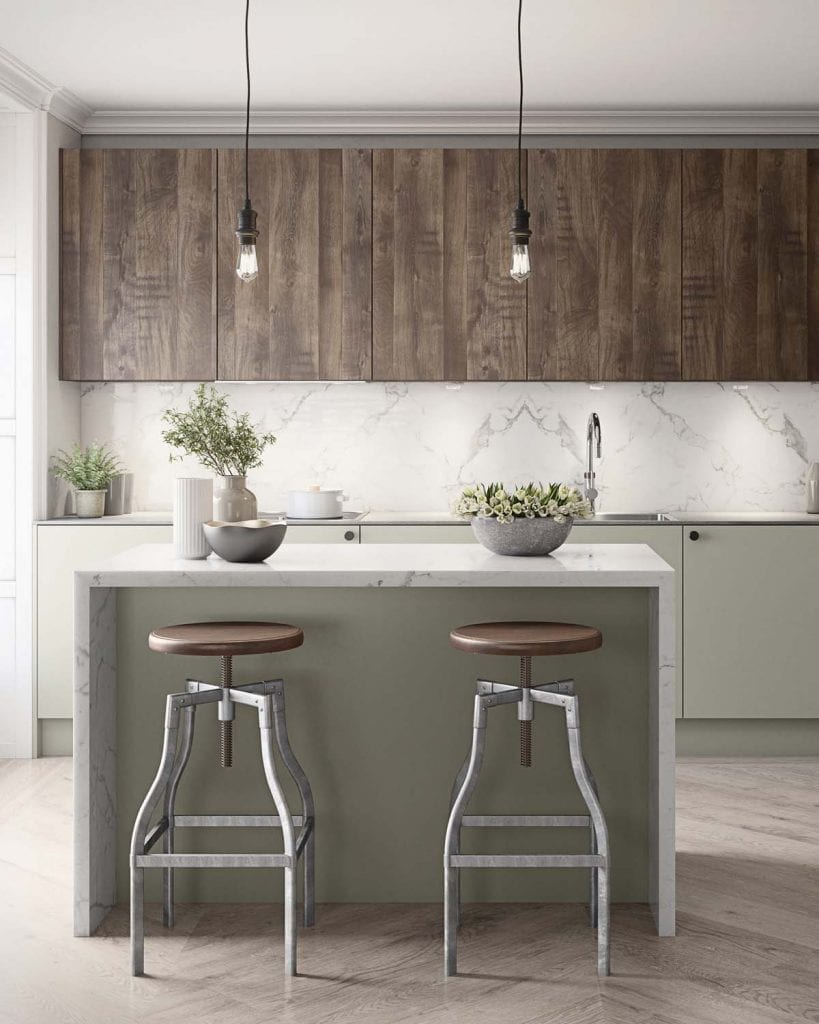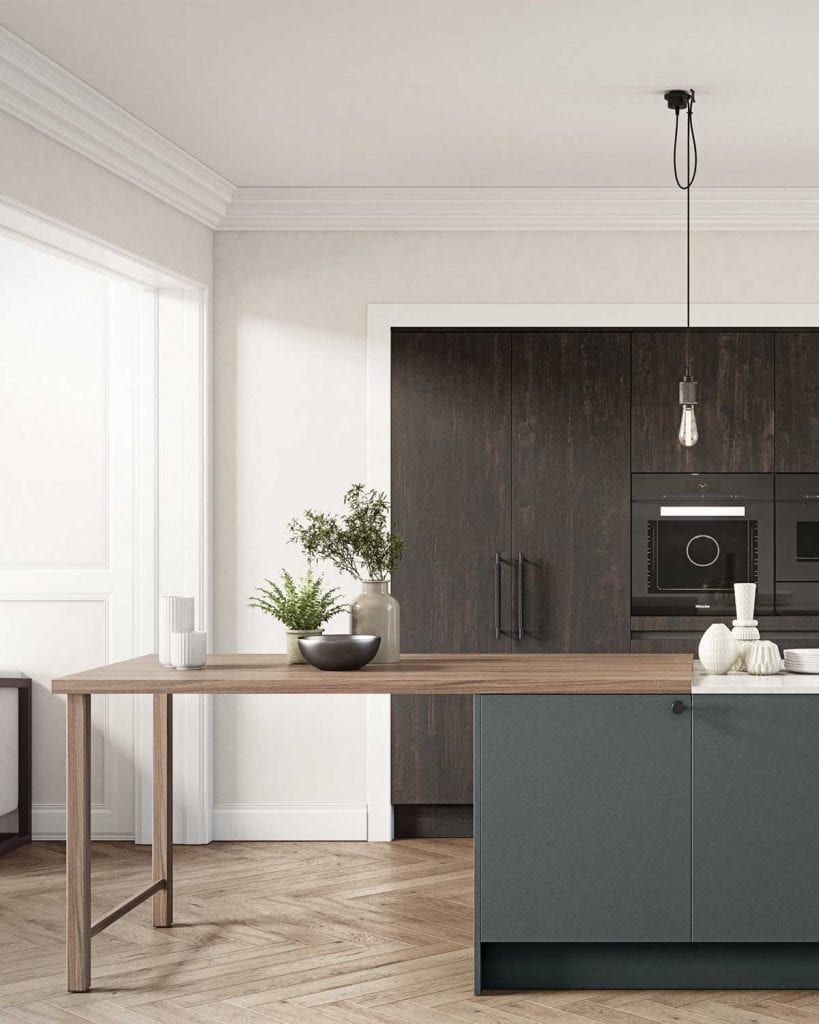Second generation family run business Daval are a British designer and manufacturer of luxury fitted furniture who recently launched their fully sustainable kitchen design. In this post we’re talking responsible, eco-design with Daval’s Managing Director, Simon Bodsworth and digging into how the Daval team created a luxury kitchen made form 100% raw recycled materials. Also, touching on how Daval are fuelling their Huddersfield factory using sawdust and waste in a biomass system, successively reducing the company’s carbon emissions by 130 tonnes annually!

Built from 100% recycled materials and engineered in Britain, every kitchen by Daval is made-to-order and made-to-measure. The new Renzo Furniture Collection starts from £10,000 +VAT and has been designed to empower the eco-conscious homeowner, every door within the collection is made from 100% recycled raw materials. Could this be the start of a growing trend towards eco-conscious design within the kitchen design industry?
“The markets moral compass has definitely shifted towards a more conscientious buying approach”
– Daval MD Simon Bodsworth
Simon explains: The consumer appetite for sustainable products is stronger than ever and trends show a preference for companies and products with eco-status, like Tesla converting the mainstream driver. The markets moral compass has definitely shifted towards a more conscientious buying approach and ways in which the buyer can ‘feel good’ about their purchase, so eco-alternatives that are just as affordable and effective are in demand.
Designing A Sustainable Kitchen…
Q. How did you come up with the Renzo design?
Our passion and commitment as a business towards the circular economy pushes us to innovate with regards to our sourcing and manufacturing methods, as well as our product development. As a second-generation family business, the inclusion of our new Renzo range was inevitable and provides the UK market with a sustainable kitchen design option that gives future generations a better quality of life. Our designers are able to present our customers with a specialist range of 100% recycled materials that are resourceful and contemporary by-design, including:
[1] Charred Japanese Wood, inspired by the ancient architectural technique Yakisugi: a traditional Japanese method of wood preservation that slightly chars the surface of the wood for greater durability, design appeal and resistance against water
[2] Character Oak Tobacco: defined by its authentic grain patterns, small knots and dark variations of colour, this new wood-effect finish recreates the look of distressed wooden planks
[3] Character Oak Natural: designed with authentic grain patterns, small knots and light variations of colour, this new wood-effect door finish simulates the look and feel of real wood
[4] Artstone Quartz Grey finish: decorative stone effect door with textured dark grey finish
[5] Artstone White Grey finish: white grey stone effect finish with textured surface

What Does The Future Hold For Sustainable Design?
Q. How do you see sustainable design developing over the next few years?
The need to help our planet can’t be ignored and I strongly believe that new homes will call for a sustainable foundation, where construction and product specification will require a certain level of eco-credentials. Examples like rainwater collection, roof solar panels and exterior green walls are becoming more common and this type of sustainable design has now entered the home with recycled sustainable kitchen furniture solutions, energy efficient appliances and sustainable manufacturing processes and brand practices changing convention. As this global challenge gains momentum, I expect to see a greater level of action from premium manufacturers that want to make a difference and provide long-term, sustainable solutions that don’t compromise on quality or originality.
On Reducing Carbon Emissions As A Business…
Q. Do you have any more exciting eco-friendly innovations in the pipeline?
In addition to the introduction of Renzo, we have also implemented an award-winning closed-looped production system in order to decrease our carbon footprint.
“We use sawdust and waste in a biomass system, which heats our Huddersfield factory and has successively reduced the company’s carbon emissions by 130 tonnes annually.”
– Daval MD Simon Bodsworth on reducing carbon emissions.
All production waste is recycled and our made-to-measure, made-to-order furniture is built from sustainable materials to again reduce wastage and help us make the transition to the “post-carbon economy” smoothly and with no impact to our current business model.
You can take a look at more design solutions from Daval HERE. Special thanks to Simon for sharing his thoughts on the world of eco-conscious sustainable kitchen design.
Christine
'Sustainable design gives future generations a better quality of life' Share on X



